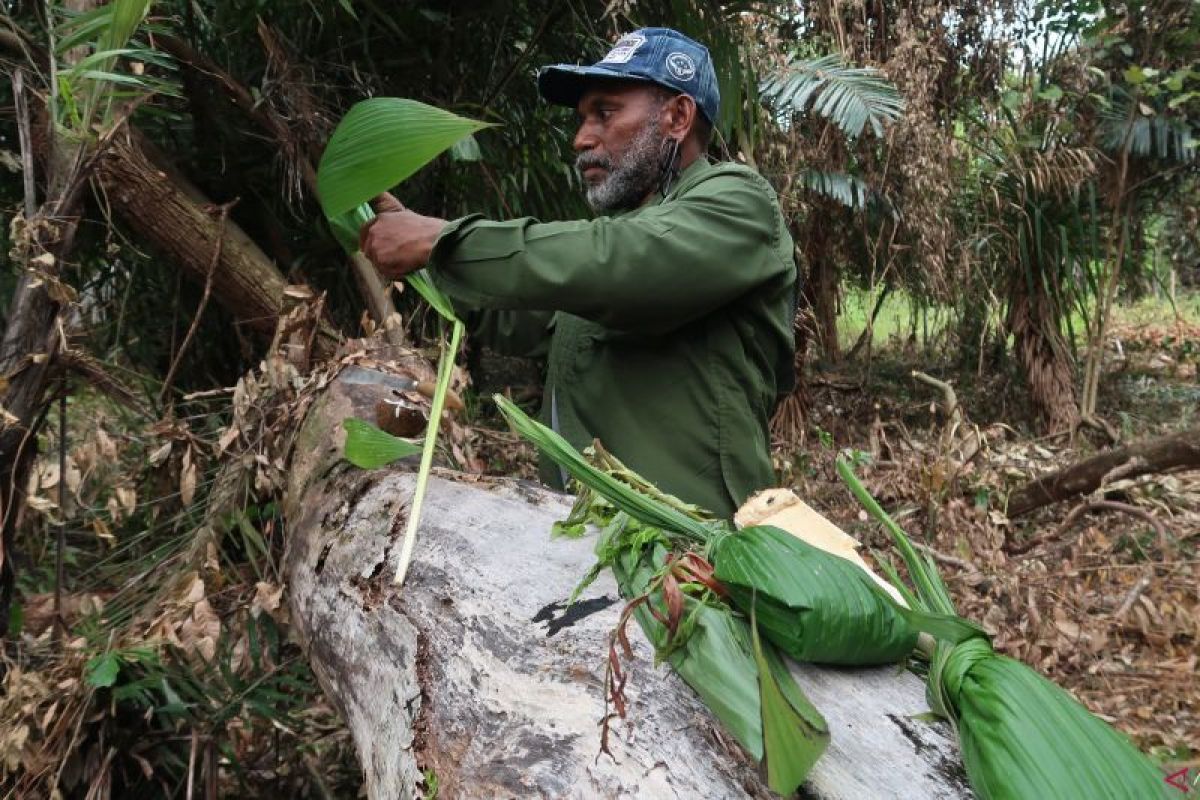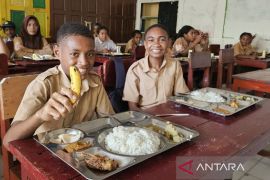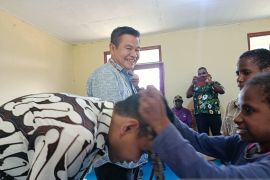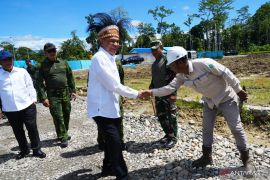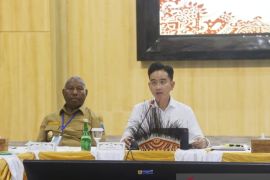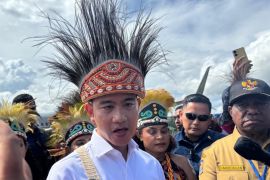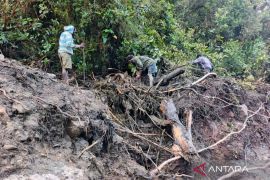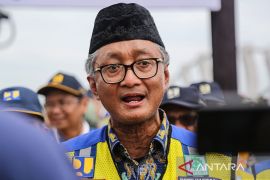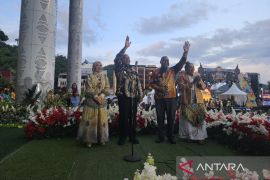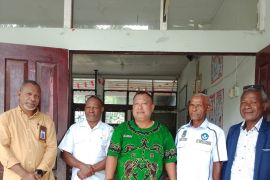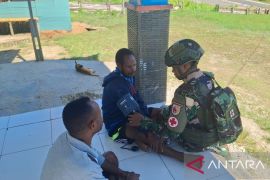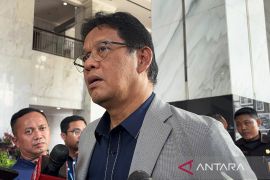The electrification, in addition to powering up Papua physically, has brought a ray of hope to communities in the region’s inland areas.
The electricity, flowing through remote locations and villages covered by forests, has opened up new possibilities for Papua to grow and develop.
Electrification does not merely mean access to electricity for people in Papua, as it also serves as a foundation for the region to grow its economy and pave the way for a better social life.
Charles Toto, a local chef, has been playing a vital role in bringing progress to Papua through gastronomy.
He has been actively introducing and promoting authentic dishes made of ingredients gathered from Papuan forests.
Holding various culinary events in the middle of the jungle to promote Papuan foods to the world is nothing new for the chef.
Toto has been utilizing electricity more effectively to scout and record food ingredients in a more efficient manner, facilitating him to further polish the attractiveness of Papuan cuisine in the eyes of the world.
Apart from that, access to electricity also allows people in the region to build simple drying machines that enable them to dry spices collected from the forests, store and distribute ingredients, and support the local culinary industry.
The existence of PLN in Jayapura, Papua Province's capital, is not meant to simply install electricity infrastructure. It also stands as a milestone that paves the way for far-reaching progress in various sectors, lending a hand to Papua to boost its economy and highlight its culinary richness.
“I am dreaming of making forests natural markets for the people of Papua. Markets that offer all necessities free of charge. I also hope that a broader population will know about Papua’s natural riches and cuisine in an authentic way,” according to the chef, who is called Chato.
The combination of PLN’s electrification efforts and technological innovation, along with Chato’s tenacity in preserving Papuan culture, has enabled Papua to illuminate not only the landscape but also to spotlight its enormous culinary and natural resource potential.
Chef Chato, along with his friend Billy, succeeded in establishing a small food shop that caters to the need of tourists for authentic Papuan dishes, thanks to the electricity supply that has powered up formerly isolated areas. Through the Jungle Chef community that he established, Chato has managed to empower local people.
However, a minority of people in Indonesia have yet to register themselves as customers of PLN’s electricity services, despite electricity having reached their residential locations.
“We still see that 0.26 percent of households are left unelectrified, most of which are located in remote areas,” said Muhadi, an official at the Directorate General of Electricity of the Ministry of Energy and Mineral Resources.
According to data from PLN, as of the third quarter of this year, the national electrification ratio has reached 99.74 percent.
In an effort to achieve total electrification, the government has implemented various measures, including the Electricity Installation Assistance (BPBL) Program.
Muhadi noted that in 2023, the program aims to electrify as many as 125 thousand households, with over one thousand of them being located in the provinces of Southwest Papua and West Papua.
In detail, the BPBL Program for the two provinces aims to provide electricity access for four houses in Maybrat District, 23 houses in Raja Ampat District, 135 houses in Sorong District, 756 houses in South Sorong District, and 169 houses in Sorong City. Furthermore, the government has also been offering discounts for Papuan residents seeking to increase the amount of electricity installed in their houses.
According to PLN, a total of 2,917 customers in Papua and West Papua provinces have been enjoying the discounts.
The expansion of electricity coverage in Papua is expected to facilitate its people's development of the creative economy sector, much like what Chato has been doing, even from the middle of the jungle.
Cataloging Authentic Papuan Recipes
Papua, a region blessed with abundant natural resources and mesmerizing natural beauty, has culinary potential closely related to the region’s history and culture of indigenous tribes.
Concrete measures for writing down original Papuan cross-generational recipes are essential to preserving the region’s treasured culinary heritage.
The measures should go beyond simply recording the recipes, but they must also involve exploring the stories behind each food, detailing the use of local natural ingredients in each dish, and explaining how the cooking process has woven into the fabric of the life and tradition of Papuan native tribes.
Chef Chato has been conducting research in various regions of Papua to devise a book that will contain Papua’s original recipes.
Emulating Chato’s approach, people can document Papua’s authentic culinary wealth in the form of a book or other forms of media.
Such a book will not only serve as a reference for local future generations, but it can also emerge as a tool for national and international communities to have a better understanding of Papua’s culture, history, and natural wealth.
Efforts to introduce and promote Papua’s culinary potential can also be regarded as a means to open new business opportunities for locals, stimulate sustainable economic growth, preserve Indonesia’s cultural diversity, and maintain Papua’s natural abundance as a treasure for the planet.
Related news: Indonesia prepares 1 mln hectares for sugar factories in Papua
Related news: Papua: Soldiers provide free health services to villagers
Translator: Afut S, Tegar Nurfitra
Editor: Anton Santoso
Copyright © ANTARA 2023
